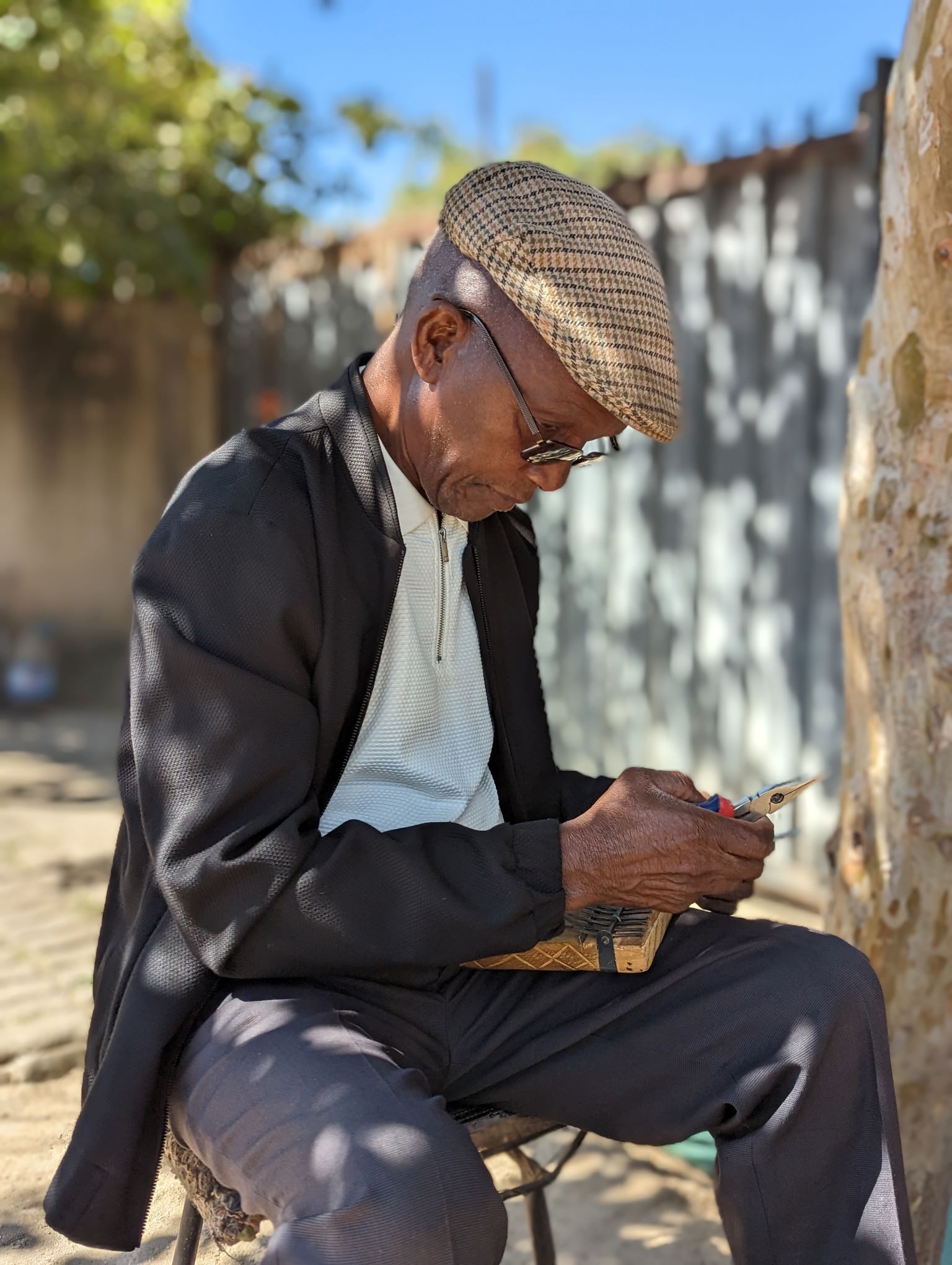We started the day recording pandutsa (warning; sometimes also kupanduka – to revolt, to go against) parts for Kuvachenjedza. Sekuru explains that a player uses these fixed phrases to inform the others that he’s going to change to another version, so that the flow of the music is retained, and no two players change at the same time.
After such a change, players say yagwa (it has fallen) – all parts of the music have fallen into place again, and should be kept going for a while before the next change, so that people can sing again. Too many changes disturb the flow of the music and the ceremony in general.
Curiously, Chawasarira says that he did not hear this practice being used in the other songs, though some parts of other songs have “intros” which sound similar to a pandutsa. He speculates that this is due to the high number of parts for Kuvachenjedza, allowing up to six players to play each their own part.
After kupandutsa, we went on recording the basic version of Marume azere dare, another “big” song in Diwa area.

Leave a Reply